Ann Cohen, the Chief Financial Officer of the Institute of Internal Auditors (IIA), has witnessed a decade of transformation in both her role and the broader audit profession. With nearly 200,000 certified internal auditors across 170 countries, the IIA sets global standards, provides certifications, and offers training and research to support the industry.
These evolving dynamics have made the CFO role more intricate, requiring a deeper alignment with internal audit teams to navigate emerging challenges effectively.
The audit process itself has grown significantly more complex, Cohen noted, as auditors grapple with heightened demands. Factors such as geopolitical instability, new regulations, and the rise of technologies like agentic AI have intensified the need for auditors to possess a nuanced understanding of operations, internal controls, and global risks. To remain effective, internal auditors must stay agile, balancing technical expertise with strategic insight.
Maintaining practical and relevant global audit standards is a priority for the IIA, achieved through close engagement with stakeholders worldwide. Cohen emphasized the organization’s “listening mode,” which involves gathering insights from National Institutes, regulators, and sponsors to track geopolitical shifts and emerging risks. This collaborative approach ensures that the IIA’s standards remain adaptable and applicable across diverse regions and industries.
ALSO READ:AFRICA: ATAF LAUNCHES MULTI-DONOR INITIATIVE TO COMBAT ILLICIT FINANCIAL FLOWS
A strong partnership between the CFO and internal audit teams is critical, highlighting transparency and trust as cornerstones of this relationship. At the IIA, the chief audit executive reports directly to the CEO to avoid conflicts of interest, yet collaborates closely with Cohen as a strategic partner. This dynamic allows them to jointly identify risks, strengthen controls, and enhance processes. Cohen views internal audit as a vital resource that not only supports her financial oversight but also provides insights across the organization’s certification, membership, and learning teams, aligning with broader strategic goals.
Looking ahead, Cohen addressed the role of emerging technologies like agentic AI in auditing, noting both excitement and caution within the profession. While the potential for AI to transform audit processes is significant, its rapid evolution poses challenges. “Everyone is trying to wrap their heads around what it means,” Cohen said, underscoring the need for sustainable implementation strategies. Additionally, she touched on the debate surrounding the 150-hour CPA licensure requirement, suggesting that compensation, rather than educational hours, is the more pressing issue. Competitive salaries for entry-level accountants, she argued, are essential to making the profession attractive and sustainable, regardless of regulatory changes.

